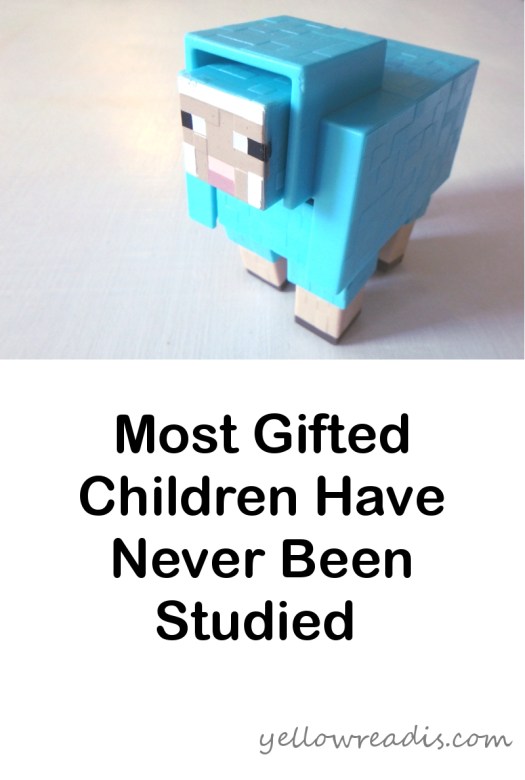The Broward County experiments change the face of gifted education research – this is why.

The Broward County experiments change the face of gifted education research – this is why.

We’ve had a lot of experience with testing over the years. We have gone through the gauntlet of testing many times. Each time, we were sure this was the ‘definitive’ test. After all that experience, and the benefit of hindsight, I know think there is no such thing as a definitive test. There is only the best you can get at the time.
Specialists and doctors are neither omnipotent, nor mistake free. But there are a number of things you can do to make testing for giftedness and disabilities a more useful experience.
So here are my best tips.
In our house, we’ve been having a bit of fun over the last few weeks thinking about thinking. Now I’m not talking about Socratic argument-type ideas. I’m talking quite literally about ‘how’ we think.
If you’ve been reading about education for a while now, you would have run into the idea that people are either visual/spatial or auditory/sequential thinkers. Now, I’m not going to agree with these – nor really disagree. But I am going to separate them out and include a new category – pattern thinking. BTW This is explained in Temple Grandin’s book – The Autistic Brain*, which is an awesome read.
As well as adding pattern thinking, I’m also not terribly happy with attaching sequential to auditory. That’s because I am an auditory thinker – but I am not sequential. I jump around and make intuitive leaps that do not always follow a logical sequence and tend to hold multiple contradictory ideas in my head in a kind of symbolic stew.
I’m also not keen on the idea of spatial being attached to visual (but they go together, don’t they? – not necessarily). What huh? You might say. Let me explain.
*This is a link to but this book – because if you want to read this awesome book, I want to make it easier for you – I am a book-enabler. But you can always hop over to your local library instead – libraries are cool.
I’m going to start this post with a link. It’s to the Authentic History Centre in the US on common excuses for stereotypes. In this case, specifically linked to racism. Go have a look at the images. In many ways, they say it better than I can, but I’m going to try anyway, again.
Many of you have read Momastery’s post about ‘Every Child is Gifted’. Many of you argued with her, reasoned with her on her forum, on the gifted help-groups where she came to ask questions. Many of you read her apology (which did not appear on her website, only her facebook page*). I, along with a lot of other people, thought that was the end of it. But no. Her ‘positive’ image is out in force again, and a lot of people don’t understand why it is so offensive.
So I want you to go and have a look at those historical images. You know, many of them were purported to be ‘positive’ depictions too, at the time.
And so, the stereotypes of gifted get trotted out yet again. Sure, she changed one word in her article – but the blurb and title around the reprinting in the Christian Science Monitor shows exactly how skin deep that change is.
You can go read the article if you like, here’s the link. Maybe you’ll get a warm glow – a positive story!
Then come back here and let’s deconstruct the narrative.
Continue reading “The Everyone is Gifted POS, again.”
There is quite a difference between the way I thought I would teach chemistry compared to the way C prefers to learn. C is very visual-spatial in his thinking. He absorbs knowledge when he can see it and touch it. He doesn’t mind listening, but he can’t just listen – there has to be a visual component, or lots of space to wiggle and jump around. And when he’s excited by a new idea he gets very loud! Which is a joy. He also loves to play with an idea – to absurdity if possible.
This makes putting together a chemistry curriculum in the more formal way a problem. But it also gives us great scope for experimentation. Afterall, where else can you go? Continue reading “Putting Together A Chemistry Curriculum”